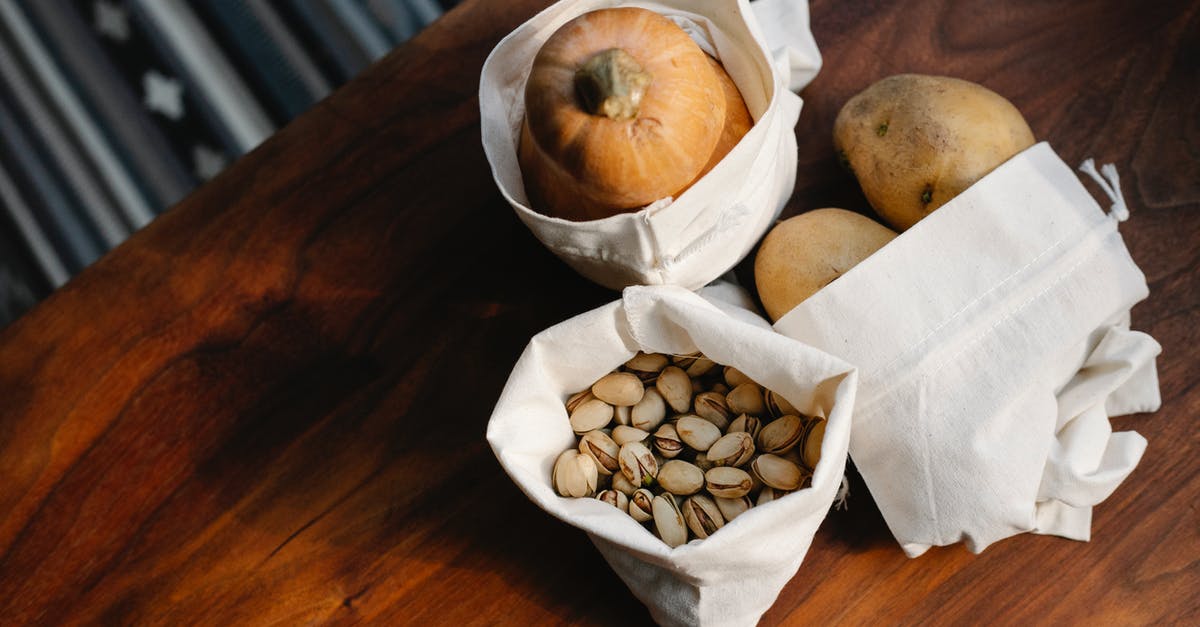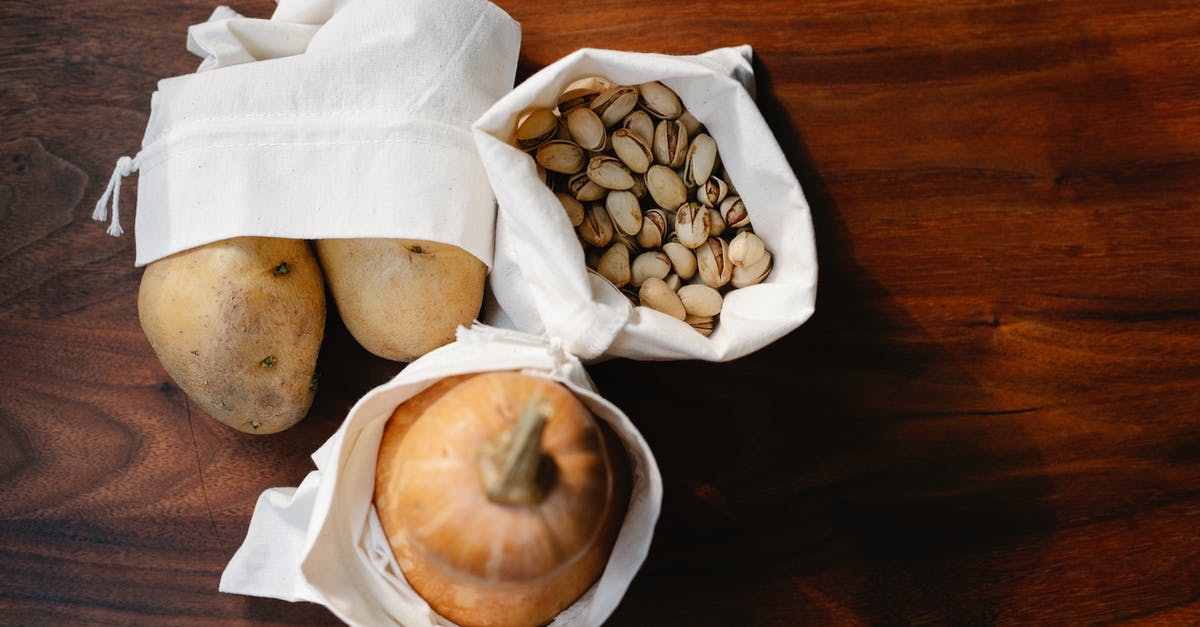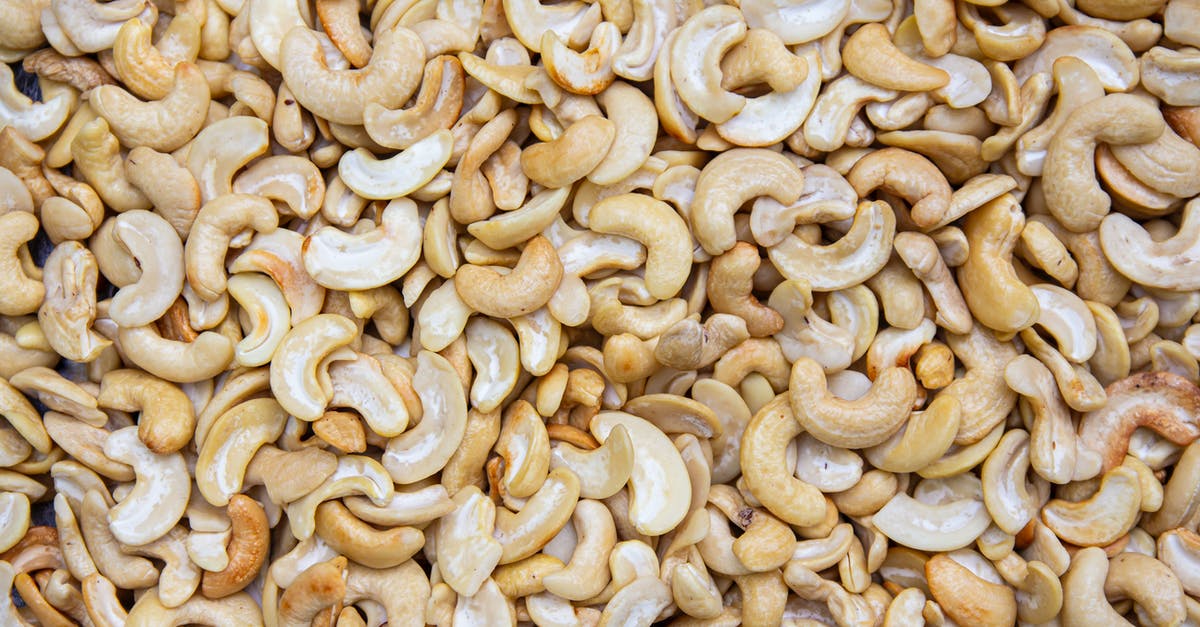Are roasted nuts nutritionally different from raw nuts?

If I roast a selection of mixed nuts, does it significantly change their nutritional content?
Also: Are there any potential food safety issues around roasting nuts (e.g. does it damage the oils)?
Best Answer
Discussion of the long-term health effects would be little more than speculation; however, there is a specific nutritional claim which can be tested, and has been tested in the commercial food-processing setting.
See: Formation of Lipid Oxidation and Isomerization Products during Processing of Nuts and Sesame Seeds:
The aim of the present study was to quantify some nutritional and safety quality parameter changes that take place in nuts (roasting) and sesame seeds (dehulling, roasting, milling, and sterilization) during processing.
...
All these parameters were significantly affected by the different processing stages, especially by roasting and sterilization (tahina). Nut roasting and sesame heat treatment increased the primary (hydroperoxides) and secondary (aldehydic compounds) lipid oxidation products, with the p-anisidine value reaching 6?11.5 and thiobarbituric acid reactive substances 3?5 mg/kg (equiv of malondialdehyde) in the different end products. In addition, roasting led to the formation of CML (between 12.7 and 17.7 ng/mg) and tFAs (between 0.6 and 0.9 g/100 g) in nuts and tahina, which were absent in the raw material. Roasting parameters appear as the critical factor to control to limit the CML and tFA formation in the final product.
You'd have to read the whole study for a detailed analysis of how roasting affects the lipid oxidation products, which are the same products seen in rancid or overheated fats, but there is going to be some effect.
This is really more of an issue in a food plant because they use big machines designed to roast huge quantities of nuts (we're talking 200 kg/h for a low-end, $5000 gas-fired machine). The heat characteristics of one of these machines is going to be completely different from the comparatively slow roasting of a tiny quantity of nuts in a home oven, so don't panic.
To be any more specific, you'd have to specify the kind of nut. The oils from different nuts peroxidize at different temperatures; some unrefined nut oils start to smoke at around 160° C / 320° F (peanut/walnut), others go well into the 200° C / 400° F range (e.g. almonds). In any case, it's very rare that you'd actually be heating the nuts up to these temperatures unless you left them roasting too long, and they'd smell very burnt at that point.
Just don't eat hundreds of pounds of roasted nuts every month, and don't burn them when you roast them, and you'll be fine.
Pictures about "Are roasted nuts nutritionally different from raw nuts?"



Quick Answer about "Are roasted nuts nutritionally different from raw nuts?"
Both raw and roasted nuts are good for you and provide health benefits. Both varieties contain similar amounts of calories, protein, carbs and fiber. However, roasting nuts may damage their healthy fat, reduce their nutrient content and lead to the formation of a harmful substance called acrylamide.Does roasting destroy nutrients in nuts?
Does dry roasting nuts destroy nutrients? No matter, roasting nuts make them tasty and flavorful but can destroy the polyunsaturated fat and minimize the number of vitamins and antioxidants. Plus, high heat in the dry roasting process ruins the high nutrient.Do roasted almonds have the same nutritional value as raw?
They both contain 6 g of carbohydrates, 1.1 g of sugars, 6 g of protein, 75 mg of calcium and 200 mg of potassium. As long as salt or oil is not added to dry roasted almonds, both raw and roasted almonds provide the same nutritional benefit.Which is healthier raw or roasted almonds?
Almonds, either raw or roasted, are a reliable source of quick energy. Each 1/2-cup serving has 411 calories and about 15 grams of protein, but raw almonds are richer in fiber, with 9 grams of fiber per serving, compared to 7.5 grams of fiber in roasted almonds.Should I eat raw or roasted nuts?
More answers regarding are roasted nuts nutritionally different from raw nuts?
Answer 2
Here's a good article addressing your question:
http://www.whfoods.com/genpage.php?tname=george&dbid=104
Edit: To paraphrase the article... In a nutshell, yes and no... Roasting nuts over 170 degrees Fahrenheit (75 degrees Celsius) can damage the fats, causing the the fat to break down (and potentially release free radicals)...
The article advises against commercially roasted nuts because you don't know at what temp they were roasted
Roasting nuts under that temperature should maintain their nut integrity :)
Sources: Stack Exchange - This article follows the attribution requirements of Stack Exchange and is licensed under CC BY-SA 3.0.
Images: Sarah Chai, Sarah Chai, Sarah Chai, Nikita Belokhonov
